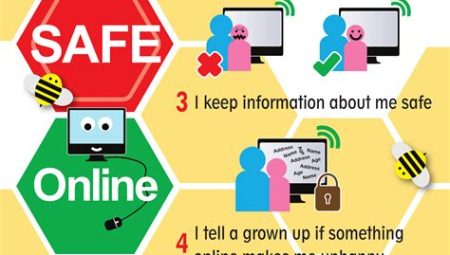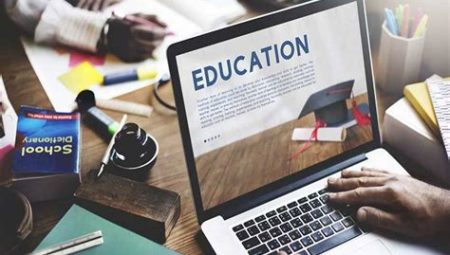In today’s digital age, social media has become an integral part of our daily lives, shaping the way we interact, communicate, and connect with others. The rise of social media platforms has redefined the way we form and maintain relationships, as well as the way we perceive the world around us. As we spend more time online, it’s important to consider the impact of social media use on our interpersonal connections and mental well-being. While social media offers numerous benefits in connecting people and creating virtual communities, there is also a downside to its pervasive presence in our lives.
In this blog post, we will delve into the impact of social media on society and explore the effects of excessive use on our mental health and face-to-face interactions. We will also discuss strategies for maintaining a healthy balance of social media use and address the growing concern of social media addiction. Ultimately, we will aim to find the right balance in the digital age, where we can harness the benefits of social media while mitigating its negative effects on our lives.
Table of Contents
Introduction to social media and its impact
Social media has become an integral part of our everyday lives, shaping the way we communicate, share information, and interact with one another. From Facebook to Instagram, Twitter to TikTok, social media platforms have revolutionized the way we connect with friends, family, and even strangers around the world.
With the advent of social media, the world has become more interconnected than ever before, allowing us to stay updated on current events, share our opinions, and engage in discussions with people from diverse backgrounds and cultures.
However, with the rise of social media comes a range of both positive and negative impacts on our society, from its influence on our mental health to its effects on our face-to-face interactions. It is essential to explore the multifaceted nature of social media and its far-reaching effects on our lives.
Throughout this blog post, we will delve deeper into the various aspects of social media and its impact, uncovering the benefits and drawbacks of this digital phenomenon, and exploring strategies to maintain a healthy balance in the digital age.
The rise of social media and its effects on society
In recent years, social media has experienced an unprecedented surge in popularity, becoming an integral part of modern society. Platforms such as Facebook, Twitter, Instagram, and Snapchat have revolutionized the way people interact and communicate, influencing various aspects of daily life.
The rise of social media has had a profound impact on society, shaping how individuals connect, share information, and engage with the world around them. It has redefined the concept of friendship and community, allowing people to connect with others across geographical and cultural boundaries.
Furthermore, social media has played a pivotal role in shaping public discourse and driving social movements, enabling individuals to mobilize and advocate for change on a global scale. From the Arab Spring to the #MeToo movement, social media has demonstrated its power to amplify voices and catalyze social change.
However, alongside its myriad benefits, the rise of social media has also brought about a host of societal challenges, including issues related to privacy, mental health, and the dissemination of misinformation. The pervasive influence of social media has raised important questions about the impact of digital technology on human relationships, individual well-being, and the fabric of society as a whole.
Benefits of social media in connecting people
Social media has revolutionized the way we communicate, allowing us to connect with people across the globe in an instant. In today’s fast-paced world, the benefits of social media in connecting people are more apparent than ever. Through platforms such as Facebook, Twitter, and Instagram, individuals can stay in touch with friends and family, no matter where they are located. Whether it’s sharing photos, sending messages, or engaging in video calls, social media has made it easier than ever to maintain relationships and bridge the gap of physical distance.
Furthermore, social media has also facilitated the formation of new connections and communities. From online support groups to hobby or interest-based forums, individuals with shared interests can come together and form meaningful relationships. This sense of belonging and camaraderie can be especially important for those who may feel isolated or marginalized in their offline communities. Social media provides a platform for individuals to find like-minded individuals and establish connections that may have otherwise been impossible.
In addition to individual connections, social media also plays a crucial role in fostering collaboration and networking opportunities on a professional level. Platforms such as LinkedIn allow individuals to showcase their skills, connect with potential employers, and expand their professional network. This has opened up new possibilities for career growth and advancement, as individuals can leverage their social media presence to access a wider range of opportunities and resources.
Ultimately, the benefits of social media in connecting people go beyond mere convenience. It has fundamentally reshaped the way we form and maintain relationships, creating a more interconnected and accessible world.
Social media’s role in creating virtual communities
In today’s digital age, social media plays a crucial role in connecting individuals from all walks of life, regardless of their geographical location. Through the use of platforms such as Facebook, Twitter, and Instagram, people have the ability to form virtual communities based on shared interests, beliefs, and goals. These virtual communities provide individuals with a sense of belonging and connection, which may be otherwise lacking in their physical surroundings.
Furthermore, social media allows users to engage in discussions, share ideas, and seek support within these virtual communities. Whether it’s a group dedicated to a specific hobby, a page focused on mental health advocacy, or a community centered around a social cause, social media provides a platform for like-minded individuals to come together, collaborate, and effect change.
Moreover, the sense of anonymity that social media offers allows individuals to express themselves freely, without the fear of judgment or scrutiny. This freedom of expression fosters an inclusive environment within virtual communities, encouraging individuals to be their authentic selves and connect with others who share similar experiences and perspectives.
Overall, the role of social media in creating virtual communities cannot be understated. It has transformed the way people form connections, find support, and collaborate with others who may be thousands of miles away. As digital platforms continue to evolve, so too will the ways in which virtual communities are formed and sustained, shaping the future of social interaction and networking.
The downside of social media and its impact on interpersonal relationships
In today’s digital age, social media has become an integral part of our daily lives, offering us the ability to connect with people from all over the world at the click of a button. However, the rise of social media has also brought about a number of negative consequences, particularly in its impact on interpersonal relationships.
Social media can create a false sense of connection, often leading individuals to prioritize their online interactions over face-to-face communication. This can result in a lack of meaningful, in-person connections, leading to decreased social skills and an inability to form deep, fulfilling relationships.
Furthermore, the constant exposure to carefully curated images and posts on social media can lead to feelings of inadequacy and low self-esteem, as individuals compare their own lives to the seemingly perfect lives of others. This can result in greater levels of anxiety and depression, further impacting an individual’s ability to form and maintain healthy relationships.
Additionally, excessive use of social media can lead to increased conflict within relationships, as individuals may find themselves comparing their own relationships to the perceived ideal relationships portrayed online. This can lead to feelings of dissatisfaction and resentment, ultimately eroding the fabric of interpersonal connections.
Effects of excessive social media use on mental health
In today’s digital age, the prevalence of social media has significantly increased, leading to a rise in the use of platforms such as Facebook, Instagram, and Twitter. While social media can provide numerous benefits, excessive use can have detrimental effects on mental health.
The constant exposure to carefully curated, idealized versions of others’ lives can lead to feelings of inadequacy, jealousy, and low self-esteem. This phenomenon, known as social comparison, can contribute to the development of anxiety and depression.
Additionally, the endless scrolling and consumption of online content can lead to disrupted sleep patterns, as individuals may feel the need to check their social media accounts late into the night, impacting their overall well-being and mental clarity.
Frequent use of social media can also lead to a loss of in-person social connections and a decrease in real-life interactions, further exacerbating feelings of loneliness and isolation, which are known risk factors for poor mental health.
Social media’s influence on face-to-face interactions
Social media has undoubtedly revolutionized the way we communicate, but its impact on face-to-face interactions cannot be overlooked. With the advent of platforms such as Facebook, Instagram, and Twitter, people are increasingly turning to online communication as opposed to meeting in person.
This shift has led to a decline in the quality of face-to-face interactions, as individuals are often more comfortable interacting behind a screen rather than in real life. As a result, the art of conversation and the ability to form deep, meaningful connections with others have suffered.
Furthermore, social media has the potential to create a barrier between people, as individuals may feel disconnected from the present moment when constantly checking their phones or engaging in online conversations. This can lead to a lack of genuine engagement and attentiveness in face-to-face interactions.
It is important to recognize the impact that social media has on face-to-face interactions and take steps to mitigate its negative effects. By being mindful of our social media use and making a conscious effort to prioritize in-person connections, we can work towards restoring the significance of face-to-face interactions in our lives.
Addressing the issue of social media addiction
Social media addiction is a growing concern in today’s digital world. With the widespread use of platforms such as Facebook, Instagram, and TikTok, more and more people are finding themselves unable to disconnect from their screens. This addiction can have detrimental effects on individuals’ mental health, relationships, and overall well-being.
One of the main reasons behind social media addiction is the constant need for validation and approval from others. The likes and comments on posts can create a dopamine rush, leading to a cycle of seeking more and more engagement. This can lead to obsessive behavior and a distorted sense of self-worth.
Additionally, the curated and often unrealistic portrayal of life on social media can lead to feelings of inadequacy and comparison. The fear of missing out (FOMO) can drive individuals to constantly check their feeds, leading to a fear of disconnection.
Addressing social media addiction requires a multi-faceted approach. Setting boundaries and limits on screen time, seeking professional help if necessary, and cultivating real-life connections are all crucial steps in overcoming this addiction. It’s important to recognize the negative impact of excessive social media use and take proactive steps towards finding a healthy balance.
Strategies to maintain a healthy balance of social media use
With the increasing prevalence of social media in our daily lives, it has become more important than ever to find a healthy balance in our use of these platforms. Social media offers a plethora of benefits, such as staying connected with friends and family, accessing news and information, and building communities. However, excessive use can lead to negative impacts on our mental and emotional well-being.
In order to maintain a healthy balance, it is essential to set boundaries for our social media use. This could involve limiting the amount of time spent on these platforms each day, setting specific time slots for checking notifications, and avoiding mindless scrolling during leisure time.
Another strategy to maintain a healthy balance is to be mindful of the content we consume on social media. Unfollow accounts that make you feel inadequate or unhappy, and curate your feed to include positive, inspiring content that adds value to your life. Engaging in meaningful interactions and discussions can also contribute to a healthier online experience.
Furthermore, it is important to prioritize real-life interactions and activities over social media. Make an effort to spend quality time with loved ones, engage in hobbies and interests, and focus on personal growth and development offline. Creating boundaries and routines around social media use can help us regain control and find a healthier balance in the digital age.
Conclusion: Finding the right balance in the digital age
In today’s digital age, social media has become an integral part of our daily lives. It offers us numerous benefits, including the ability to connect with people from all over the world, access to a vast amount of information, and opportunities for self-expression. However, the excessive use of social media can also have negative effects on our mental and emotional well-being.
It’s important to find a balance in our use of social media. One strategy to achieve this balance is to set boundaries and limits for ourselves. This could mean allocating specific times of the day for social media use, or imposing restrictions on the amount of time spent on various platforms. By doing so, we can prevent social media from taking over our lives and interfering with our real-world interactions.
Another approach to finding the right balance is to be mindful of the content we consume on social media. This means being selective about the accounts we follow, and being wary of the potential negative impact of comparing ourselves to others. By curating our social media feeds to include content that is uplifting and informative, we can create a more positive online experience for ourselves.
In conclusion, while social media offers many advantages, it’s important to be mindful of the potential downsides and strive for a healthy balance in our digital lives. By setting boundaries, being selective about the content we engage with, and prioritizing real-world connections, we can ensure that social media enriches rather than detracts from our overall well-being.





